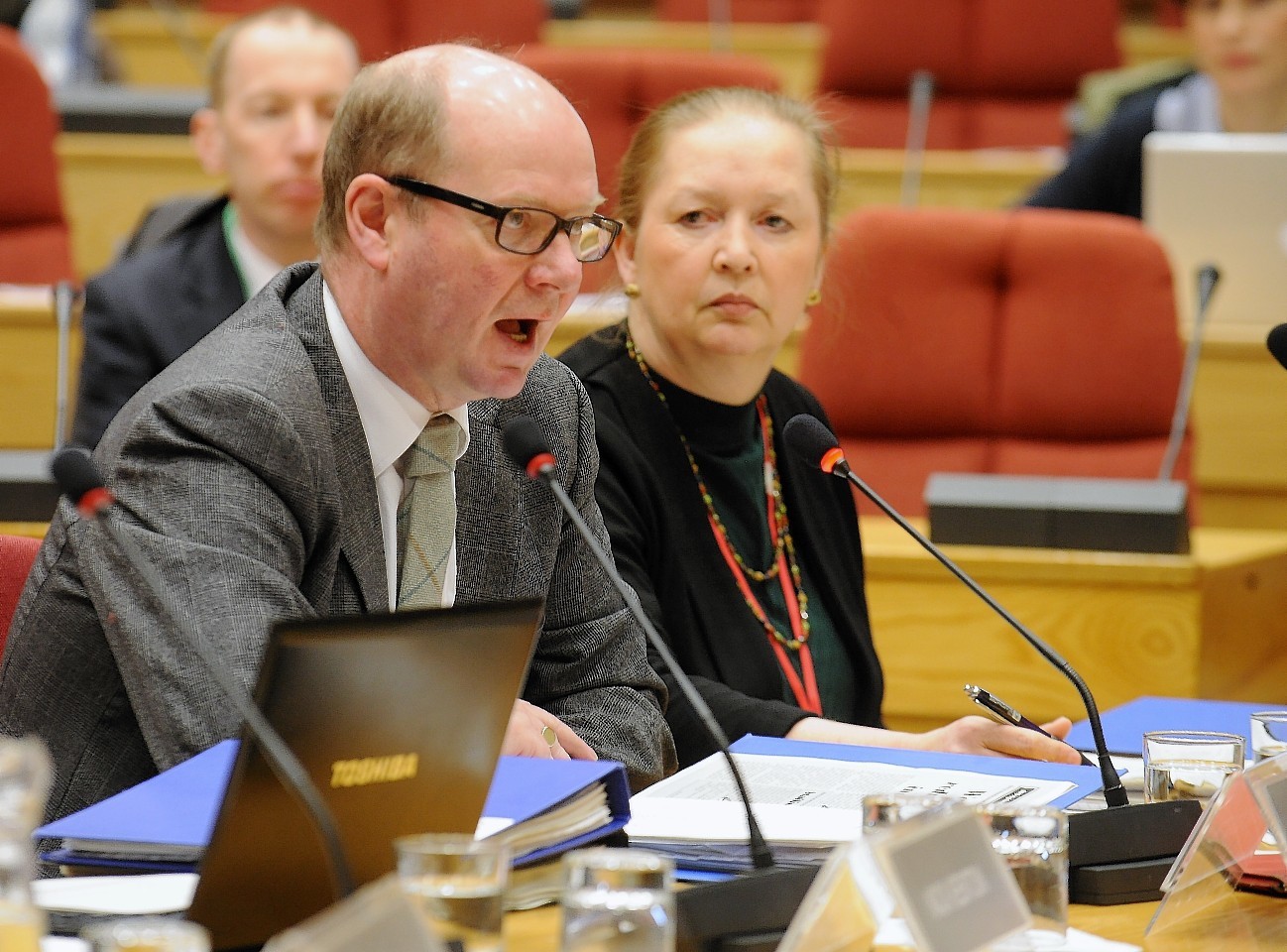A damning report into financial management at NHS Highland has blamed poor leadership and a culture of complacency for the need for a cash bailout.
The Scottish Parliament’s Public Audit Committee said that without the £2.5million Scottish Government loan, there would have been “serious repercussions” for patients.
MSPs said that there was a lack of transparency over NHS Highland’s move to seek the loan or “brokerage” in order to break even in 2013/14.
And there are continuing concerns that health bosses do not understand the root causes of increased overspending at the north’s flagship hospital, Raigmore in Inverness.
Overspending at the facility rose from £600,000 in 2010/11 to £9.6million in 2013/14, with underspends in other areas of the health service used to plug the gap.
Last night, NHS Highland chairman Garry Coutts said that the board accepted the report.
He and colleagues were hauled before the committee twice to face questions over the problems.
He added: “We have already acted to address the concerns the committee has raised, both in its latest report and previously, and we are determined to ensure that our financial management and our governance practices are of the highest standards.”
Mr Coutts is criticised in the report for not calling a special board meeting when it became clear that brokerage was needed.
And the chief executive Elaine Mead is also singled out.
The report says: “We are also uneasy at the board’s decision to mandate the chief executive to do ‘whatever necessary to break even’ at a time when NHS Highland was still publicly reporting it would break even.
“Such a mandate appears to us to amount to ‘moral hazard’ whereby the risk of brokerage being required – for the first time in 11 years – was not viewed as significant because that risk fell on the Scottish Government.”
And the committee said it is still unsure about how well informed board members were.
Convener Paul Martin MSP said that they had expected to find a “robust and transparent system of checks and balances”, showing how the situation developed. But he said that NHS Highland provided “unclear and contradictory” evidence.
He said: “The fact that, for example, Raigmore Hospital continued to overspend year on year, despite £5million extra funding in 2012/13, suggests to us a culture of complacency about budgetary oversight at the hospital and at the NHS Highland board. “The slow progress in addressing the causes of the overspending at Raigmore was exacerbated by the practice of creating compensatory underspends elsewhere in NHS Highland in order to break even.
“What was clear to the committee was that without brokerage there could have been serious repercussions for patients. The lack of transparency about the need to seek brokerage meant there was little opportunity for the public and staff to understand early on why brokerage was being sought and the potential impact on services of paying it back over three years.”
